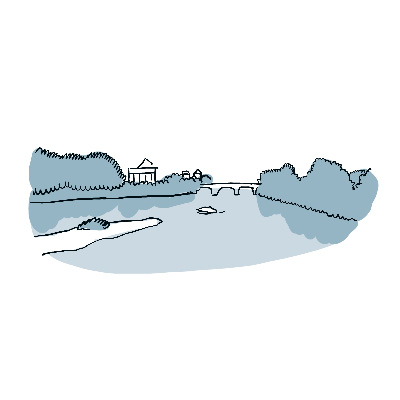
1. The Loire
You're now strolling along the wild banks of the Loire River. This river, the longest in France with 1006 kilometers, may also be the most beautiful. Read more
Tour
5,4 km
2h
22 audios
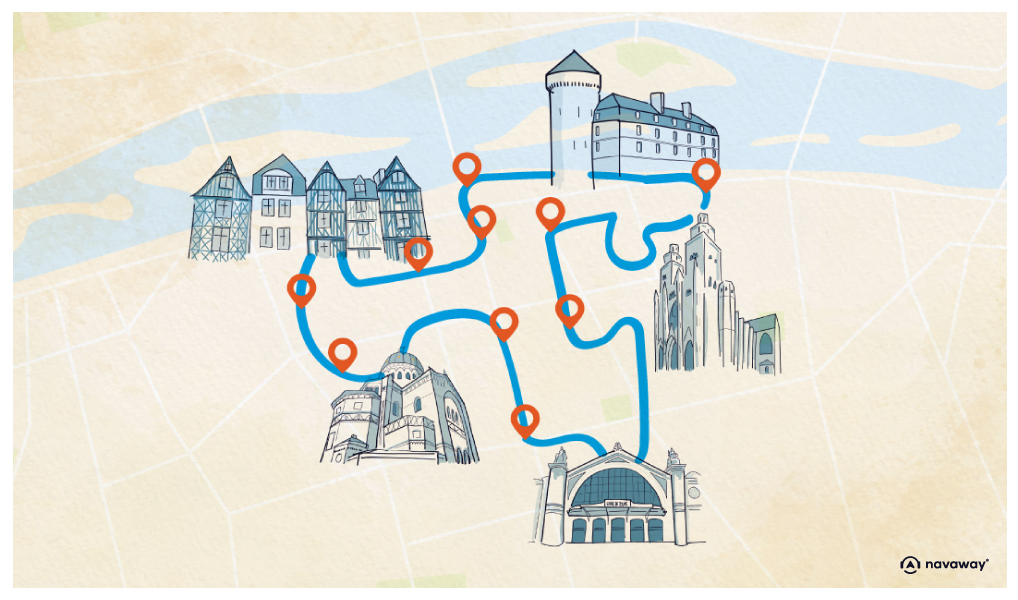
Text version
Quietly set on the banks of the Loire and Cher rivers, the city of Honoré de Balzac awaits you for a historical dive into what was once the capital of France. Known as Caesarodunum in ancient times, Tour is a true city of Art and History , It served as the seat of the French kings during the 100 Years’ War, was a leader in the silk industry, and later became the capital of Touraine, nicknamed the Gardens of France during the Renaissance. Nowadays, it’s a lively university town looking towards the future, with a historic center packed with hidden gems from the past, earning its title as a remarkable heritage site. And that’s exactly what we’re gonna explore today – delving into the secrets that the cobblestones of Tours are just waiting to spill.

You're now strolling along the wild banks of the Loire River. This river, the longest in France with 1006 kilometers, may also be the most beautiful. Read more
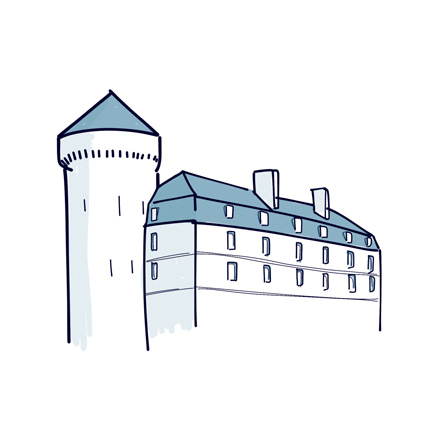
At the height of the Loire Valley, with its many sumptuous castles, the Tours castle might not be the most jaw-dropping one you've ever seen. Read more
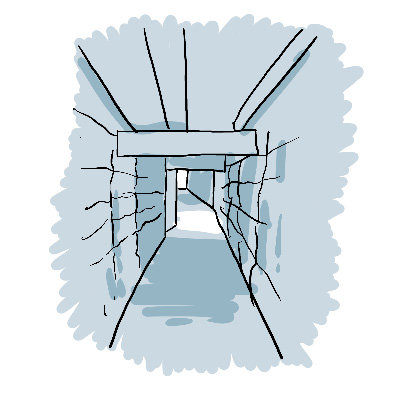
This little passage that we're walking through now is called the Passage du Cœur Navré, which translates to the Passage of the Broken Heart. It's like the Bridge of Sighs in Venice, evoking the sadness of the condemned who passed through this passage on their way to the scaffold set up in the Foire-Le-Roi square. Read more
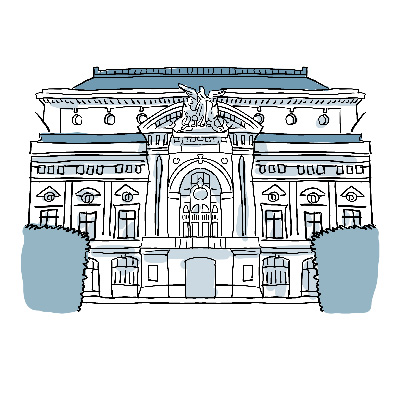
Here you are in front of the Grand Théâtre, the only opera house in the Centre region! Originally, like the famous La Scala theatre in Milan, there was a church here, the Church of the Cordeliers. Read more
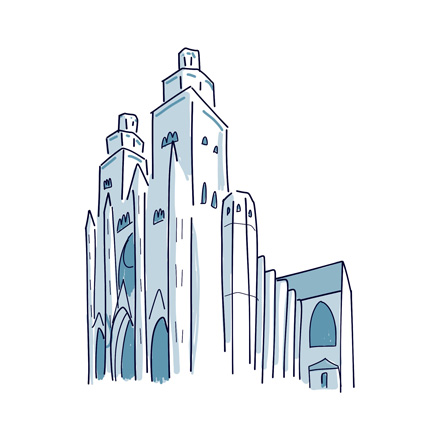
If you're a fan of the flamboyant Gothic style, Saint-Gatien cathedral is the place for you! Its construction began in the 13th century and lasted for about 400 years! Read more
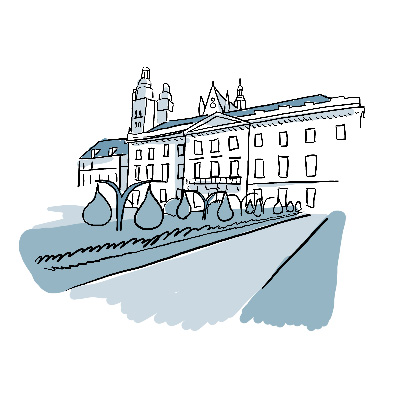
Welcome to the beautiful garden of the Museum of Fine Arts in Tours, located in the former episcopal palace of the city. Indeed, The bishops were housed near the cathedral in an ancient palace dating back to the 4th century. Read more

As you enter the premises of the Museum of Fine Arts, you are immediately intrigued by the stuffed elephant in its showcase. Allow me to introduce Fritz, a star from the early 19th century, from the North American circus Barnum and Bailey. Read more
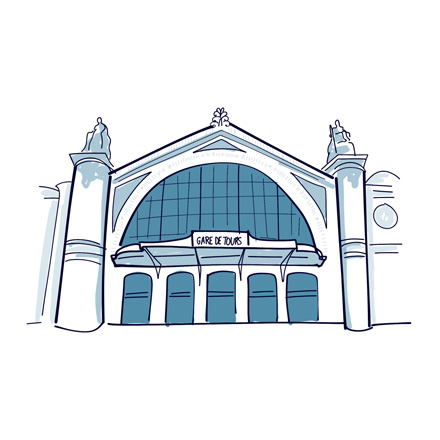
Not many train stations can brag about having any tourist appeal beyond getting you where you need to go. But the Tours train station is downright beautiful! Read more
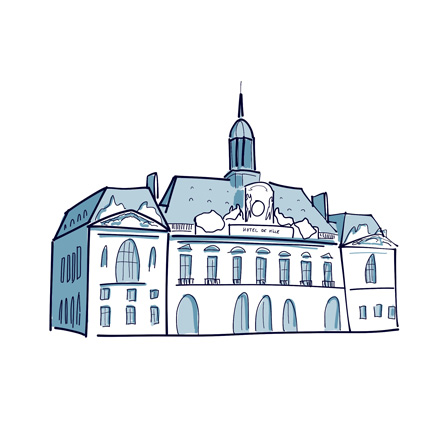
Right in front of you, on the little Jean Jaurès square, stands the imposing Tours City Hall. Built at the end of the 19th century and inaugurated in 1904, it looks more like a palace than anything else. Read more
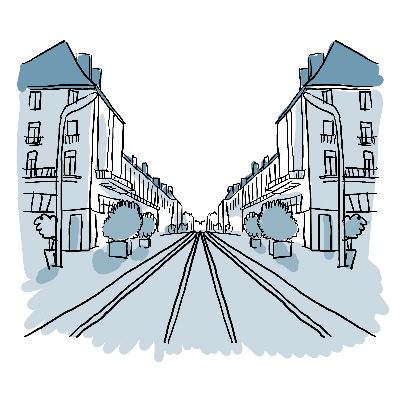
This is the town's main artery. Nationale street, stretching 700 meters long, connects Jean Jaurès square to Wilson Bridge crossing the Loire River. Read more
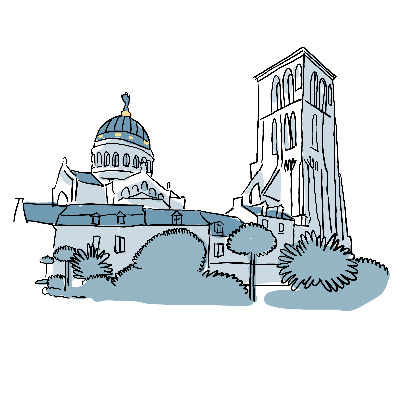
You can immediately tell that you're stepping into another era with the Charlemagne Tower standing before you. It's one of the few remnants of the former Basilica of Saint-Martin, which was destroyed in 1797, along with the Clock Tower and the Saint-Martin Cloister. Read more
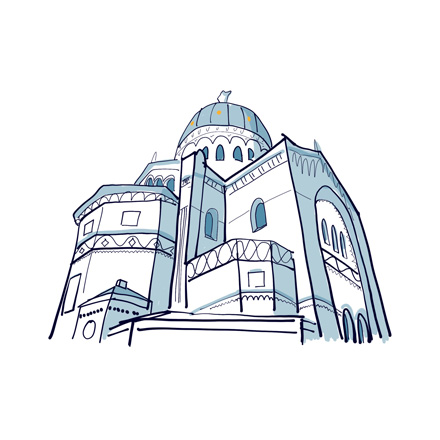
The Saint-Martin basilica you're looking at now was built from 1887 to 1902 by architect Victor Laloux, yes, the same one who worked on the city hall and the train station. He sure had a busy life! Read more
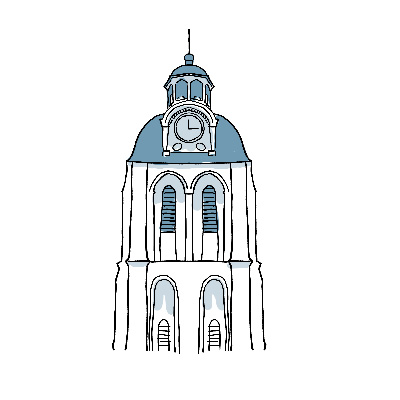
You’re now in front of the Clock Tower. It enables you to really get a sense of how big the old 11th-century Saint-Martin basilica was. Read more
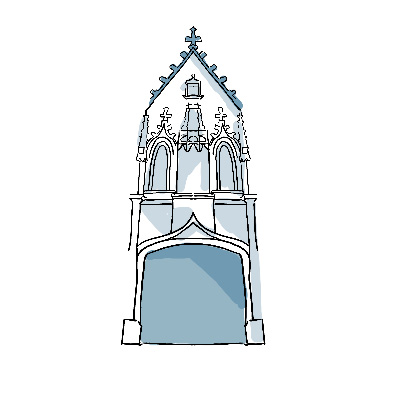
This intricately sculpted gate in flamboyant Gothic style is another testament to Tours' past. It's all that remains of a private mansion belonging to the treasurer of the canons. Read more
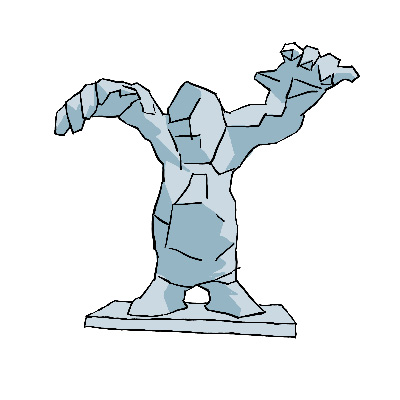
A little anachronism in the heart of the historic district. Here you are face to face with the Monster of Market Square! Read more
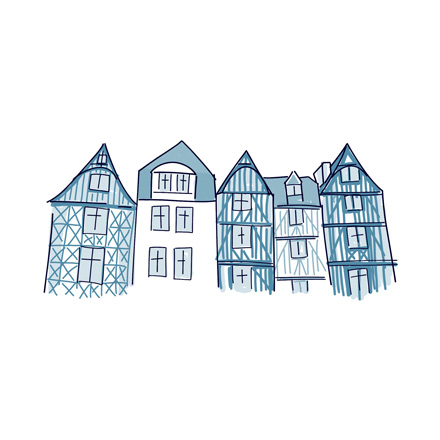
Here it is. This is what you came to see in Tours. A remarkable collection of half-timbered houses surrounding a cozy square filled with cafes and restaurants. Read more
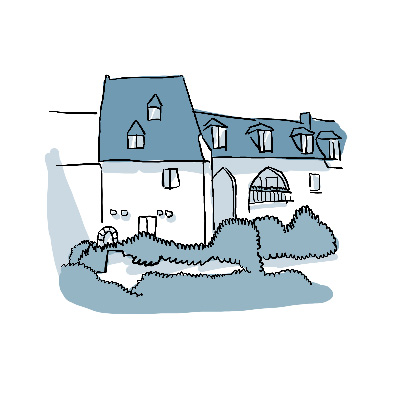
Here you stand in the midst of a rich tapestry of history, with Roman and medieval remnants intertwined. In the 500s, after her husband Clovis passed away, Queen Clotilde came to settle in Tours. Read more
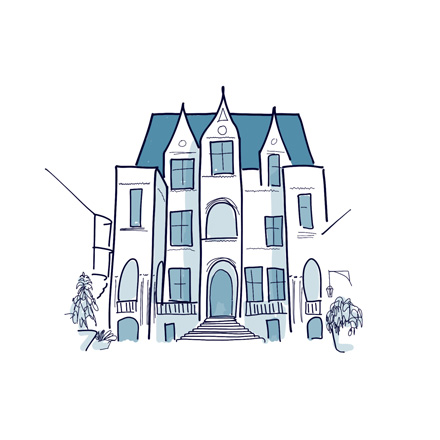
You're still in the Plumereau neighborhood of Tours, the city's most important historic area. Here stands the Goüin Mansion, a gorgeous example of Renaissance architecture. Read more
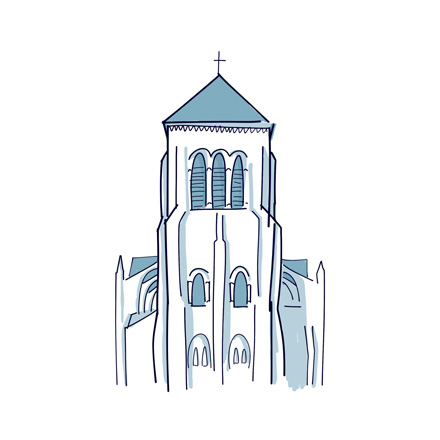
This is the Saint-Julien Church of Tours. Legend has it that in the 6th century, Clovis decided to erect a church to celebrate his victory over the Visigoths. Read more
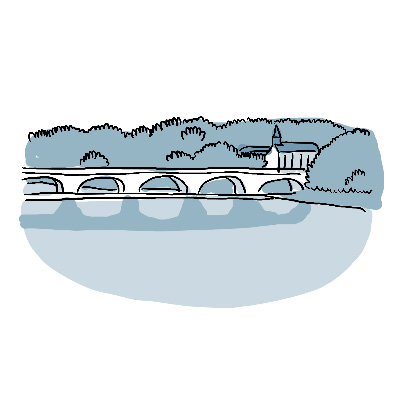
We are on the Wilson Bridge, offering a lovely view of the Loire River banks and an interesting perspective of the National street behind you. Read more
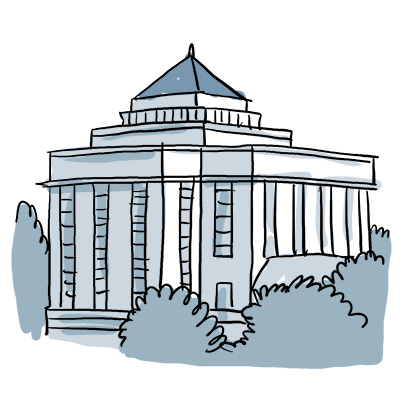
The beautiful Art Nouveau building you see there, comfortably nestled facing the Loire River, is the Tours municipal library. Its remarkable architecture and history have earned it the status of a historical monument. Read more
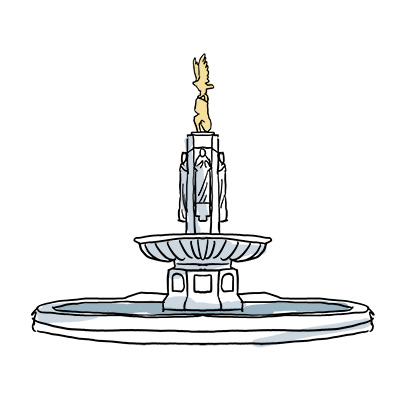
Passport, please! You're entering American territory. Yes, believe it or not, the plot of land on which this beautiful fountain stands belongs to the United States! Read more


Discover Tours with app
An interactive guide through the most beautiful streets, squares, and districts
22 fun audioguides full of historical facts, anecdotes, and legends
Dive into the history of the Renaissance by visiting the Château de Villandry and its stunning gardens.
If you’re up for a bit of greenery right in the heart of the Loire, head over to Simon Island, accessible via Napoleon Bridge. This landscaped park offers breathtaking views of the Loire River, along with spaces dedicated to sports or relaxation.
Calling all art lovers! Tours boasts some top-notch museums. The Compagnonnage Museum we mentioned earlier is a must-see. And if contemporary art is more your vibe, check out the Olivier Debré Contemporary Creation Center, a real hotspot for artistic experimentation and showcasing.
For a tasty journey through the flavors of the region, don’t miss a trip to the covered markets. It’s the perfect spot to find local products and indulge in the famous Sainte-Maure goat cheese, Tours rillettes, or discover Loire Valley wines.
Thanks to its privileged location in the Loire Valley, Tours is an ideal starting point for visiting some of the region’s castles. If you only see one near Tours, make it Chenonceau castle. Just 30km away, it’s the second most visited castle in France after Versailles. Known as the “Ladies’ Castle” for the influential women who lived there, like Catherine de Medici and Diane de Poitiers, it’s the epitome of Renaissance elegance. Its arches spanning the Cher River give it an unmistakable silhouette. Don’t hesitate to explore it by water, hop on a canoe or boat for a unique perspective.
Less than 20km west of Tours, you can visit Villandry castle and its famous gardens. And 30 minutes to the east, you’ve got access to the magnificent Amboise castle, and Clos Lucé castle, known for its museum on Leonardo da Vinci, housed in the artist’s former home. You can even hit up the Mini-Castle Park and see all the Val de Loire sites in a single day!
Extend your adventure in Tours with a wine tasting or a cruise on the Loire River
200 audioguided tours for cities all around the world
DownloadOur rating
Budget
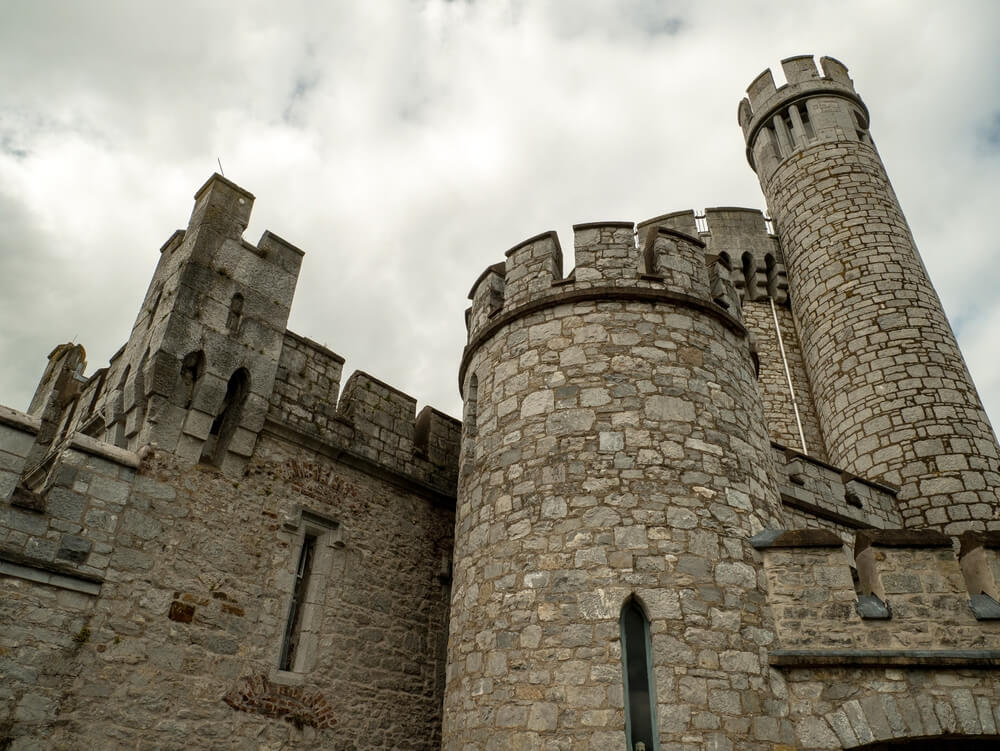
Description: It is located in the oldest district of Tours and is now considered one of the most important castles in France. Much more than just a castle, it hosts an artistic program featuring sculptures, paintings, archaeological projects, various installations, and photography. Spread across four levels, these works form a tribute to contemporary art, making it a peaceful place where serenity prevails. Open Tuesday to Sunday from 2 PM to 6 PM, it is located on Avenue André Malraux.
Our rating
Budget
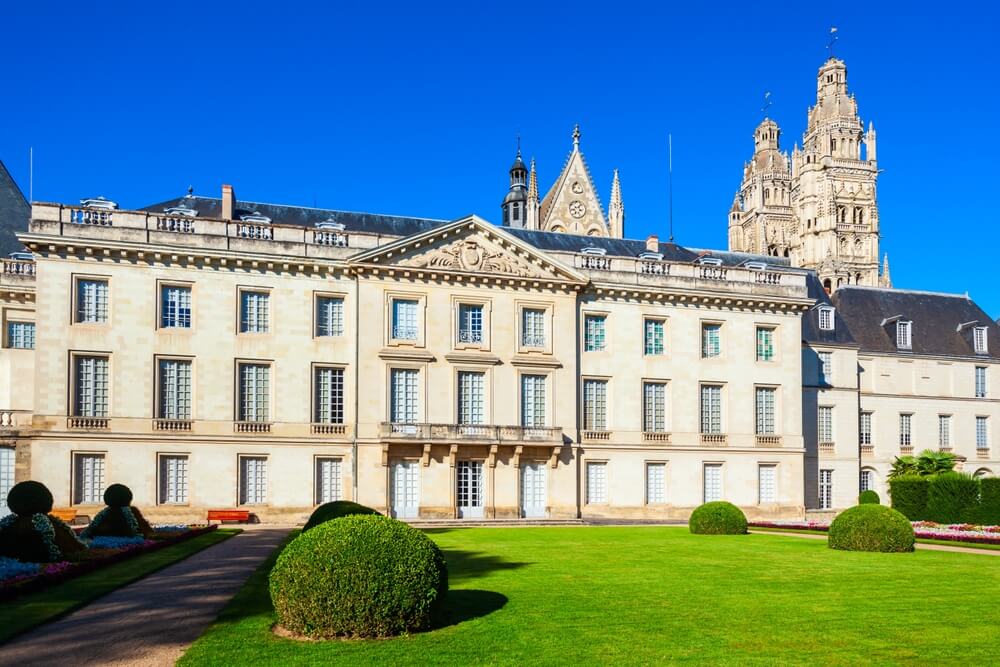
See Our Full Review
Our rating
Budget
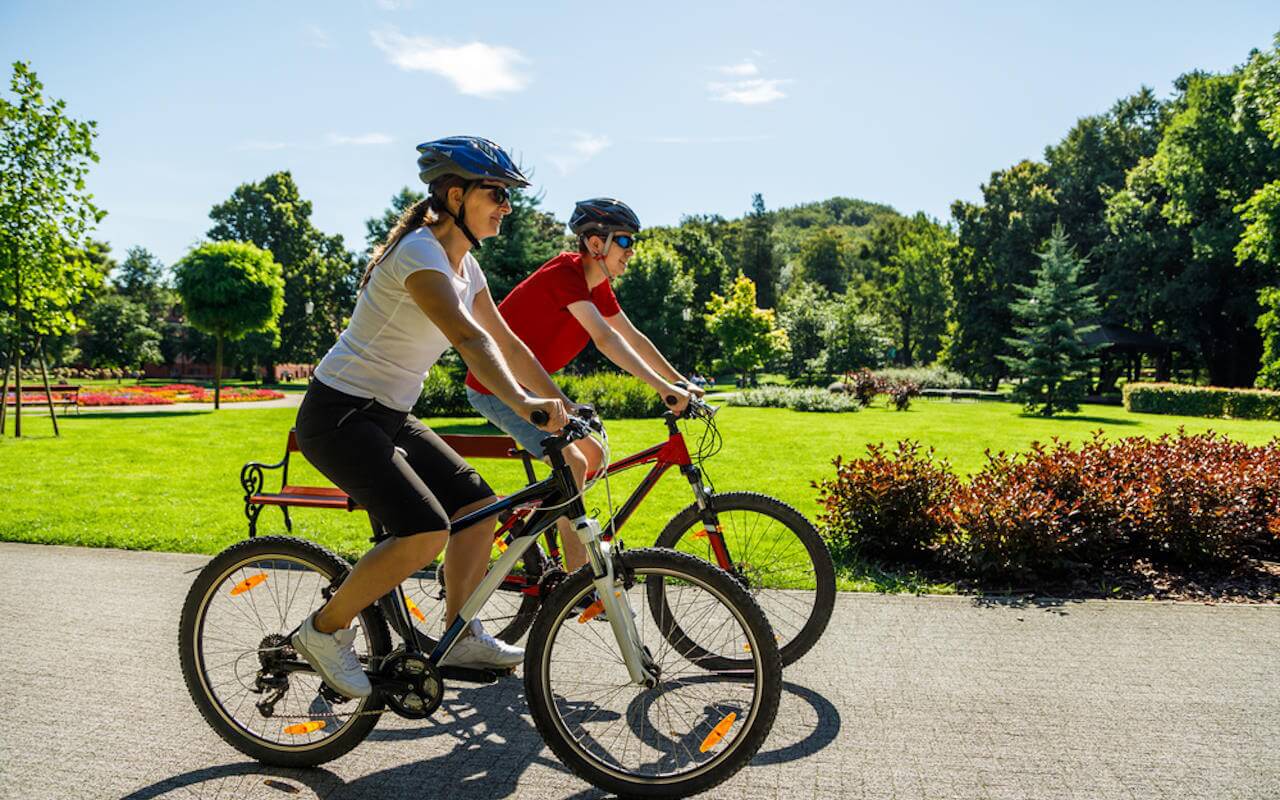
See Our Full Review
Our rating
Budget

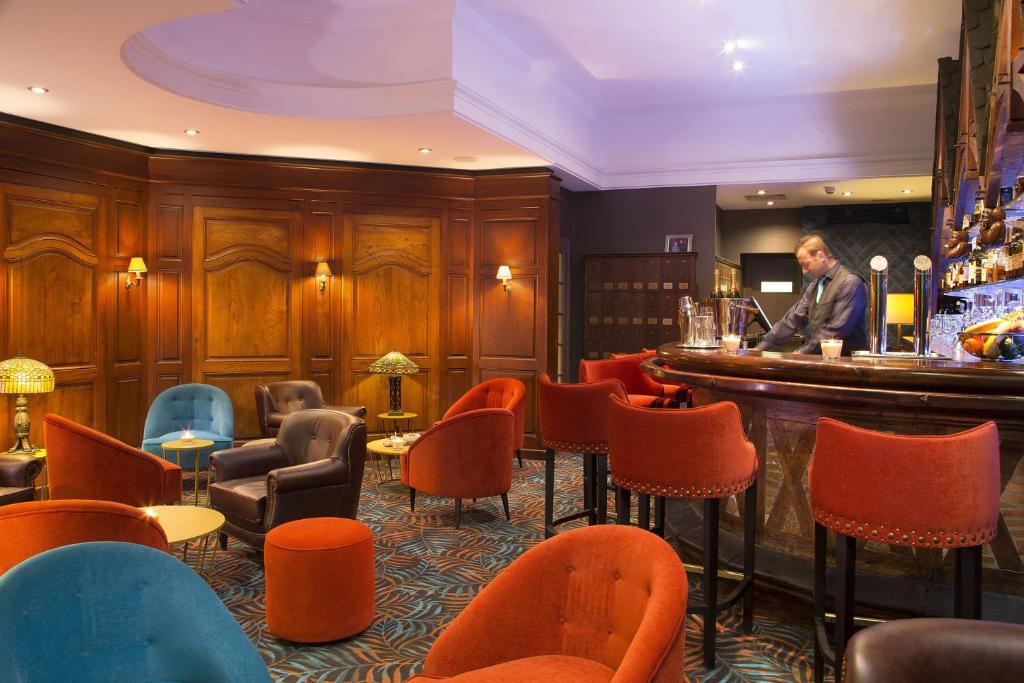
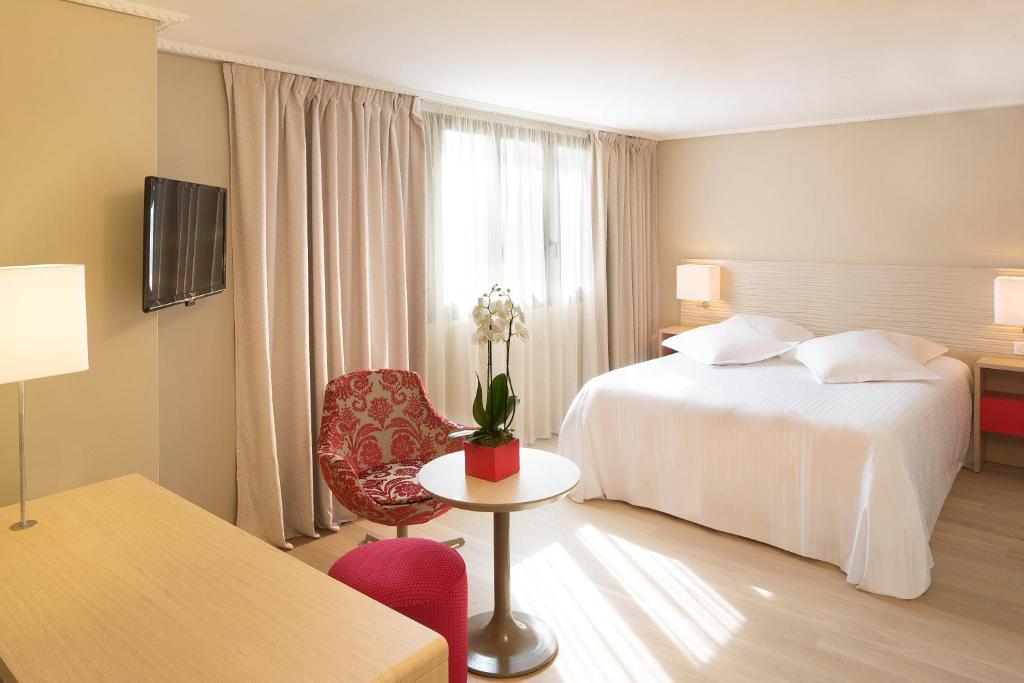
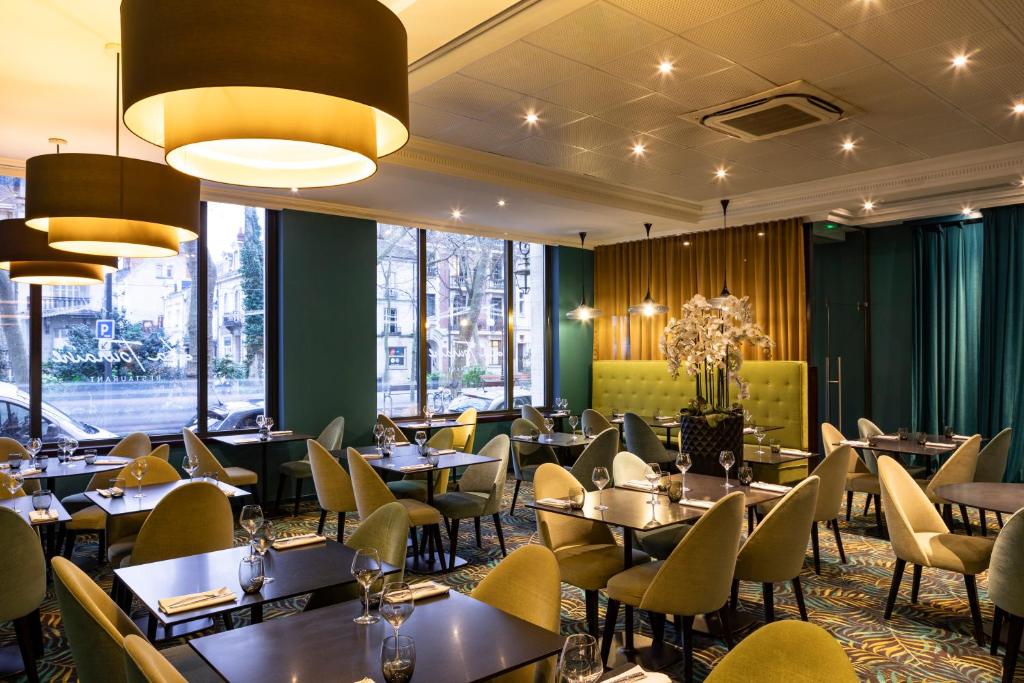
This hotel will feel like a second home to you in Tours.
Magnificent and authentic, facing…
Read More
Highlights
Jacuzzi
Free high-speed internet
Pets allowed
Taxi service
Bar/lounge
Things to Consider :
Paid parking
Location : 5, Boulevard Heurteloup, 37000 Tours, France
Our rating
Budget
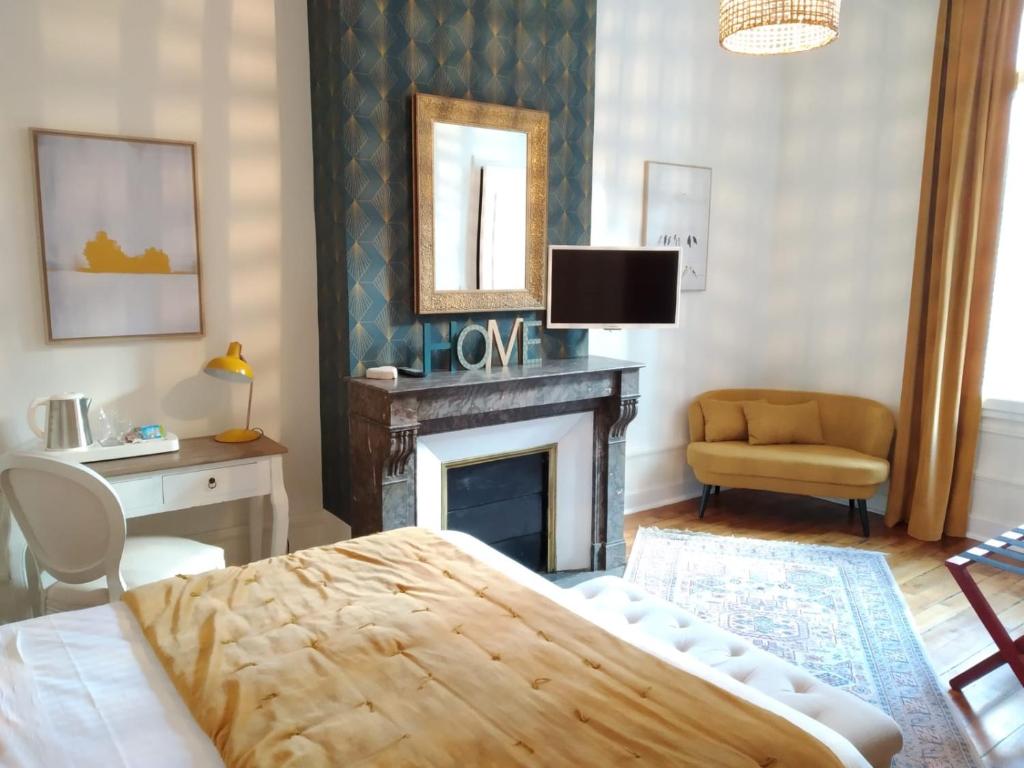
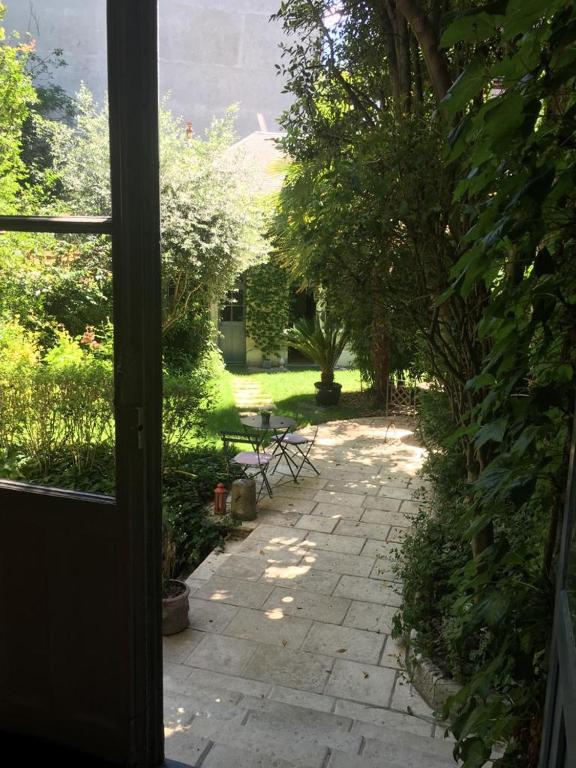
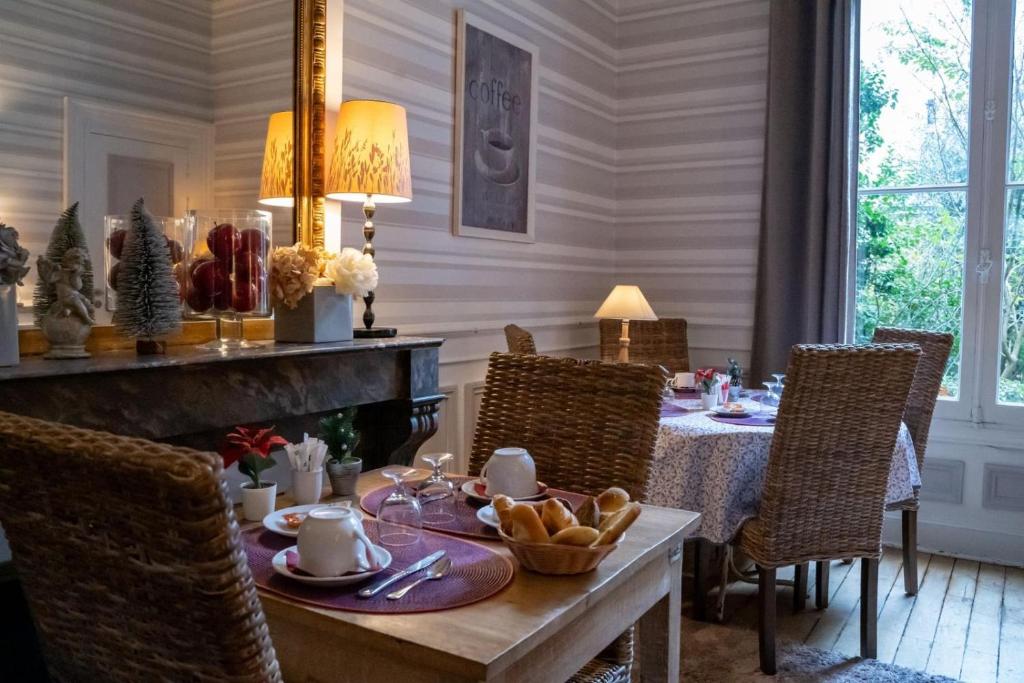
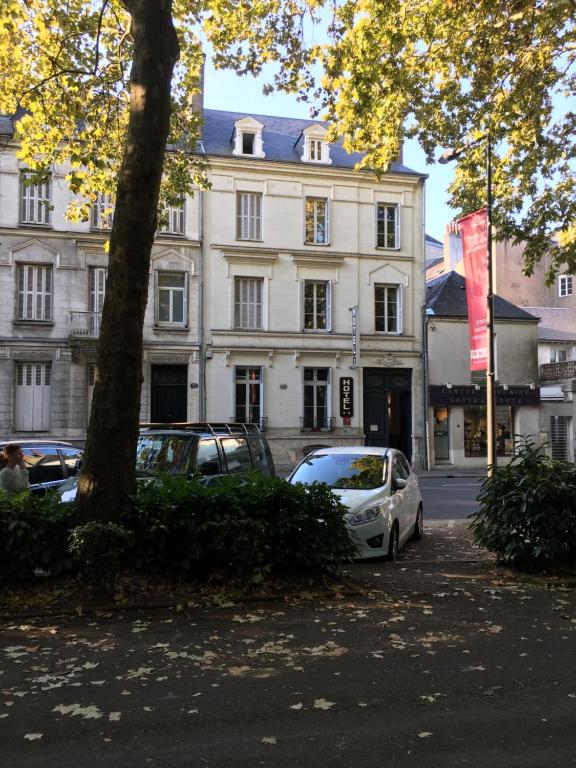
See Our Full Review
Our rating
Budget

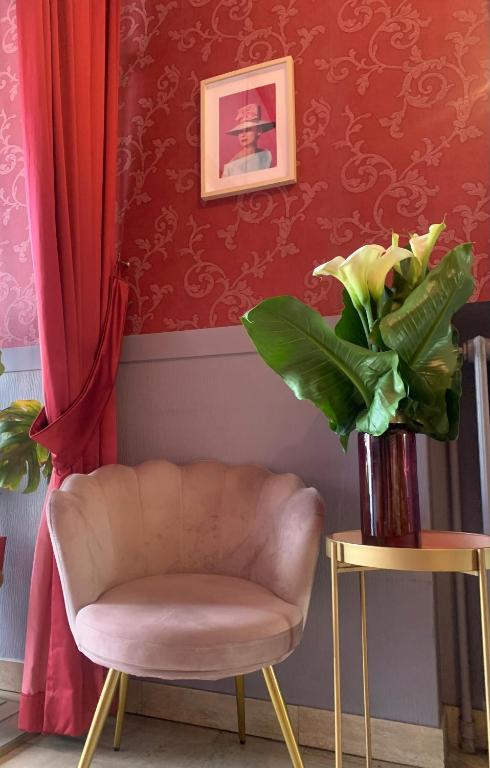
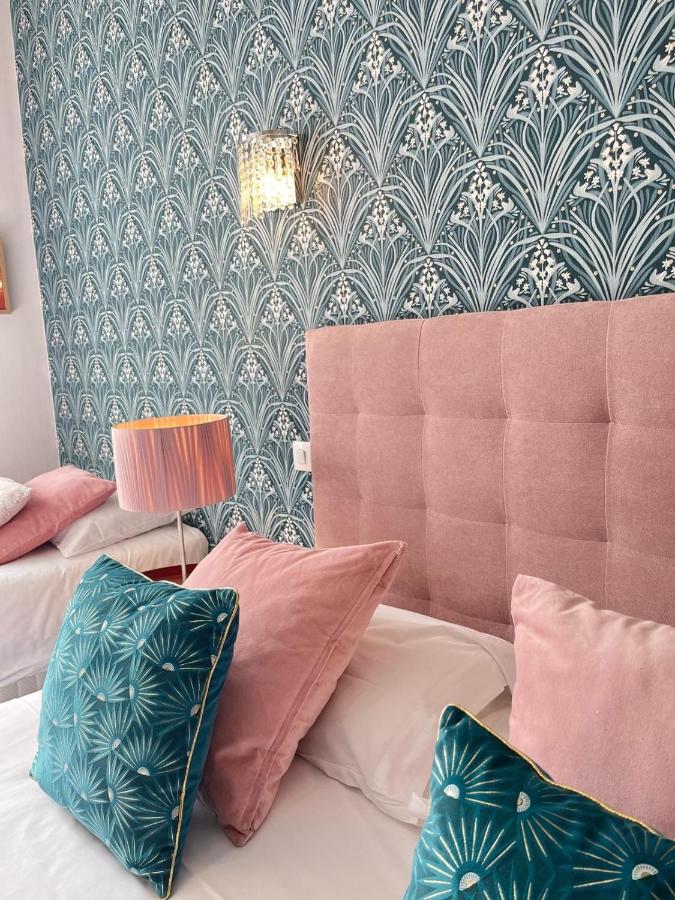

See Our Full Review
Most of the restaurants in Tours are located in the historic city center. The concentration of restaurants will make you hesitate between various cuisines offering different flavors. If you’re looking for refined, Michelin-starred cuisine, head to Rue Colbert, near the Château de Tours. You’ll have the chance to taste local specialties prepared in the finest way. For something simpler, Rue du Grand Marché is lined with restaurants offering everything from traditional cuisine to Scandinavian street food. The choice is wide, and it can be hard to decide with so many great flavors in a small area!
To visit Tours and the Loire Valley properly, it’s important to choose a neighborhood that suits your needs for accommodation. Each part of Tours has its own charm. The Vieux Tours district is idyllic if you want to enjoy the charm of half-timbered houses, cobblestone streets, and traditional shops. Staying in this area will put you close to many restaurants (Place Plumereau) and several tourist sites such as the beautiful 15th-century house, La Belle Teinturière. For convenience, the train station area has a variety of affordable hotels while being close to the city center.
Tours, the capital of the Indre-et-Loire department, is well-served by different transport options. If you choose the most eco-friendly option, the train, it takes just one hour from Paris to Tours. From Lyon, certain intercity trains will take you directly to Tours in about five hours. However, when traveling from Rennes, which is closer to Tours than Lyon, a transfer is necessary. The train station is in the city center, which makes it easy to get to your accommodation. The Tours airport isn’t very well connected, with only a few flights arriving from Porto, Marseille, Marrakech, or London. It’s not considered a major international airport.
Renting a camper van in Tours is an excellent way to explore the Centre-Val de Loire region. You can camp near the Loire River to enjoy the idyllic surroundings. Several van rental agencies are based in Tours to make this road trip possible. Alternatively, you can use online agencies like Yescapa or Campada. These sites allow you to filter your search based on specific requirements, such as needing a van with a kitchen.
The city of Tours attracts more and more visitors who want to discover the Centre-Val de Loire region. It’s no surprise, considering the numerous wonders to see throughout the region. The Loire Valley Châteaux attract thousands of visitors each year from all over the world. Summer is the peak season for tourists, so accommodation prices rise with the influx of visitors. Summer temperatures are warm but not stifling. However, the best time to visit Tours would be in May. The number of tourists remains reasonable, and you won’t have trouble doing the activities you want. You’ll also enjoy a pleasant climate and beautiful spring colors. If you’re keen to immerse yourself in local culture, visit during the last week of July. On July 26, for Saint Anne’s Day, the Garlic and Basil Fair takes place, a popular tradition in Tours. Locals wear white, pink, and green clothes for the occasion.
Tours is not an excessively large city, making it possible to visit key tourist sites like the Saint-Gatien Cathedral, the Fine Arts Museum, and the Château de Tours on foot. The city is well-equipped with public transportation, including a tram line that runs from north to south and several bus lines to explore the surrounding areas. However, cycling is probably the most enjoyable way to get around Tours. You can wander around the Vieux Tours with its cobbled streets and half-timbered houses, or take a ride along the Loire River. Dedicated bike paths make these pleasant trips possible.
Visiting Tours doesn’t require taking five days off. In a weekend, you’ll have enough time to explore the main tourist sites, such as the Château de Tours or the Olivier Debré Contemporary Creation Center. The city center and historic heart are compact, and points of interest are concentrated within this area. However, if you wish to visit the surrounding areas and the numerous Loire Valley Châteaux like Château de Chambord and Château de Chenonceau, plan at least half a day per castle.
When staying with family in Indre-et-Loire, it’s important to find activities that everyone will enjoy. About an hour’s drive from Tours, the Beauval Zoo will delight both children and adults. This world-renowned zoo is considered the fourth most beautiful zoo in the world, housing 800 species and 35,000 animals, including giant pandas, lions, and hippos. Tours also has several parks and gardens where you can take a pleasant stroll and have a picnic. On a sunny day, enjoy the Prébendes d’Oé park or the botanical garden. Play areas are available for children to burn off energy. Even though kids often ask, “When are we going home?” or “I’m tired of walking,” a walk in Vieux Tours is always enjoyable. Everyone of all ages appreciates the beauty of this area with its half-timbered houses.
Visiting Tours in a wheelchair is entirely possible. Public transportation is accessible, with trams and buses equipped with ramps. Most major activities and tourist sites are also accessible. The Vieux Tours district is navigable without any apparent issues, museums are wheelchair-friendly, and parks and gardens provide the opportunity for a relaxing walk. It’s even possible to visit famous Loire Valley Châteaux like Château de Chenonceau.
The Centre-Val de Loire region is world-famous for its numerous beautiful châteaux with rich histories. When staying in Tours, it’s essential to visit these fairy-tale-like monuments. Among the most famous Loire Valley châteaux is Château de Chambord, the largest, most majestic, and most impressive. All positive adjectives can be used to describe the beauty of this building. A bit closer than Château de Chambord is Château de Chenonceau. The Centre-Val de Loire region doesn’t only have châteaux; you can also visit the stunning Gothic Chartres Cathedral, one of the most beautiful in France. This 13th-century cathedral is listed as a UNESCO World Heritage site, and rightfully so! It has been perfectly preserved, which is increasingly rare these days.
Tours may not be the most famous French city for its gastronomy, but I’m sure you’ve enjoyed some Touraine specialties without even realizing they come from Tours. You’ve likely had rillettes from Tours, which are perfect for an appetizer spread on a good slice of bread, and everyone loves them (except vegetarians). Rillettes are made from pork, cooked and browned in fat before being shredded. It’s the most popular local specialty and now holds an IGP (Protected Geographical Indication). If you haven’t tried this yet, you won’t be disappointed! Another controversial specialty is the andouillette from Vouvray, which is as loved as it is disliked. Some may find its smell off-putting at first, as it’s made from pork offal, i.e., tripe. It’s an acquired taste and worth trying at least once in your life to form your own opinion. Now, for something sweeter, there’s the emblematic cheese of Tours: Sainte-Maure. This soft goat cheese is pierced with a straw and its texture changes depending on its aging, but it remains delicious.
Comments